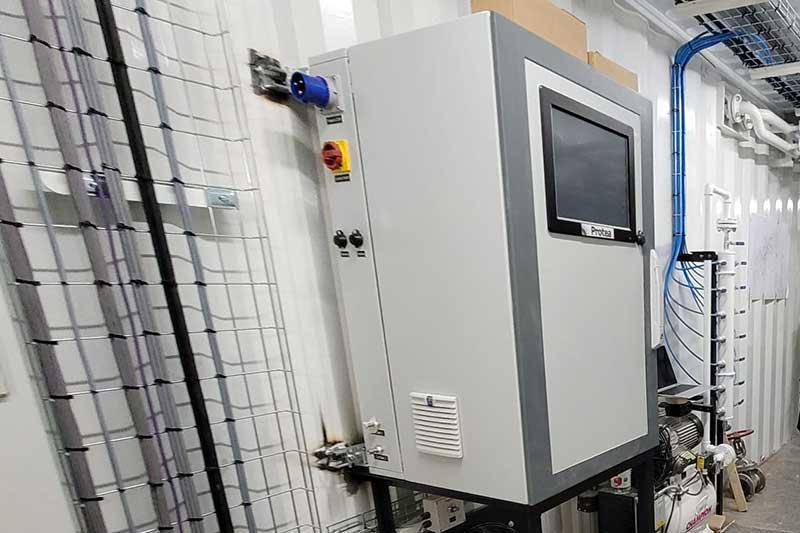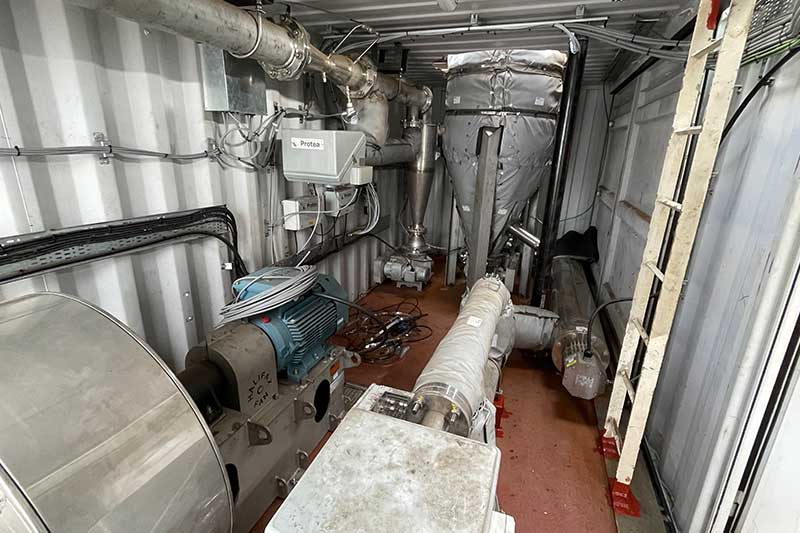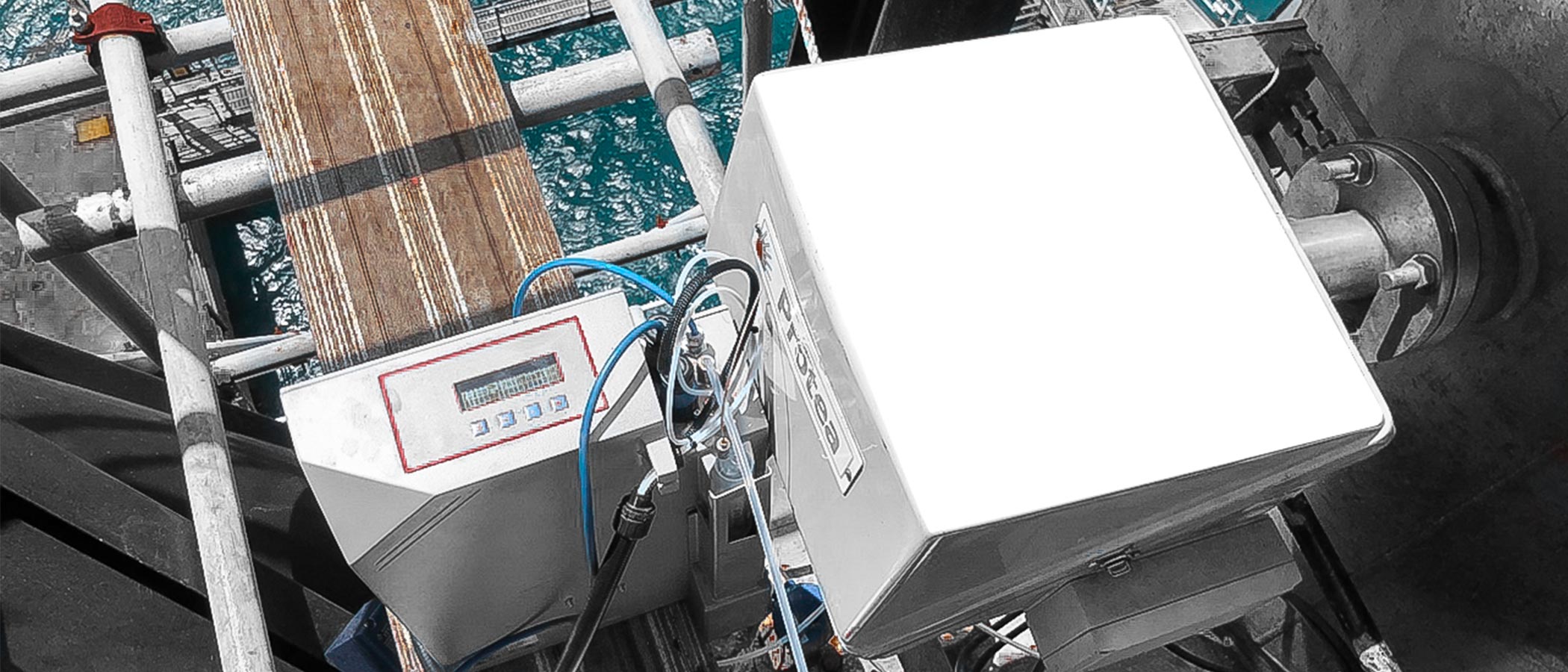With increasing pressure to reduce greenhouse gas emissions, the marine industry is turning to carbon capture technology as a key strategy to meet regulatory requirements and achieve environmental goals. Carbon capture systems onboard vessels are designed to capture CO2 emissions before they are released into the atmosphere, significantly reducing the carbon footprint of maritime operations.
Protea has been actively involved in multiple carbon capture storage (CCS) research and development projects tailored to the marine sector, exploring innovative methods such as:
- Absorbent pebbles
- Electrolysis
- Non-pressurised gas separation membranes
These technologies offer various approaches to capturing and storing CO2 from ship exhausts.
Accurate monitoring of these systems is crucial to ensure their efficient performance. Protea’s analysers play a key role in this process. Designed for real-time monitoring, they measure CO2 and other exhaust gases with high precision, enabling operators to continuously assess the effectiveness of carbon capture systems. By delivering accurate and reliable data, Protea supports future regulatory compliance and optimises carbon capture performance, making its technology a vital tool in the industry's decarbonisation efforts.
Protea’s marine analysers can be:
Example gases and ranges that have been covered in marine CCS:
| Gas | Formula | Range(Low) | Range(High) |
|---|---|---|---|
| Water | H2O | 0-6% | 0.40% |
| Carbon Dioxide | CO2 | 0-6% | 0-100% |
| Sulphur Dioxide | SO2 | 0-150ppm | 0-1200ppm |
| Nitric Oxide | NO | 0-500ppm | 0-4000ppm |
| Nitrogen Dioxide | NO2 | 0-150ppm | - |
| Methane | CH4 | 0-500ppm | 0-1000ppm |
| Particulate Matter | PM | 0-200 mg/m3 | - |
| Oxygen | O2 | 0-25% | - |


